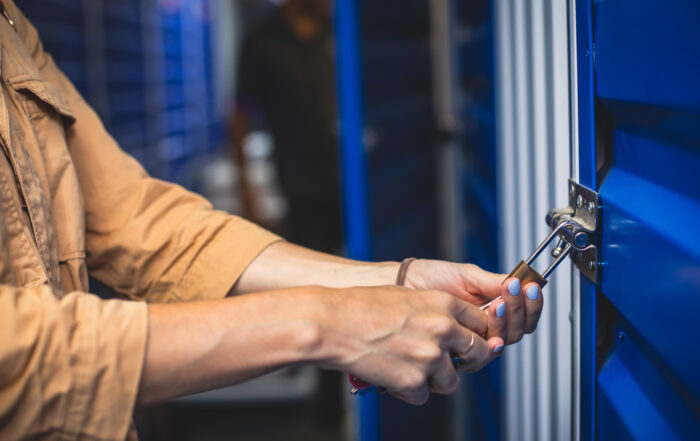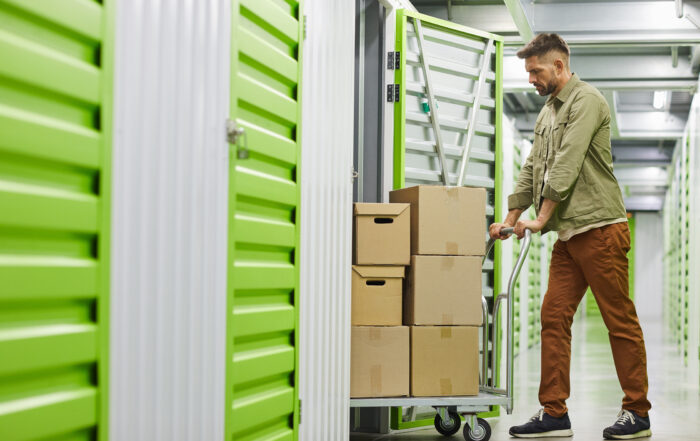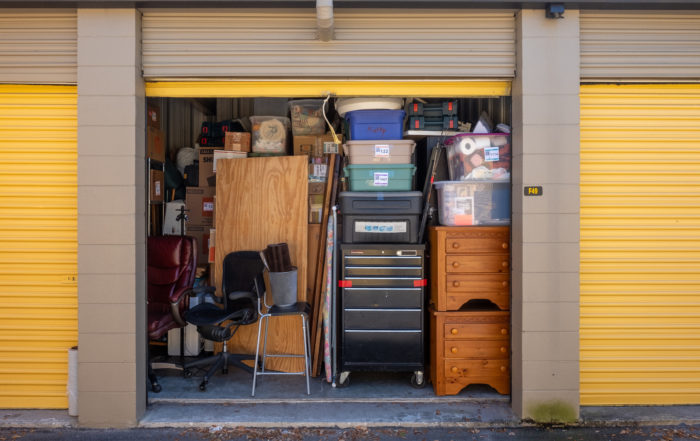5 Things You Should Never Put In Self Storage
Getting a self-storage unit can be exciting because you can store all the things! But that isn’t exactly true in all cases. There are certain items that just aren’t safe to store for various reasons.
Some of these items on the list might seem like common sense, and others might surprise you— so read on to learn more about the 5 things you should never store in a self-storage unit.
1. Money
Are you wondering why storing money is a bad idea? We touched on this a few blogs back, but it’s worth mentioning again. In 2018, a woman bought an auctioned-off storage unit for $500. The storage unit had been abandoned for some time, the monthly bill wasn’t being paid, so off to auction the storage unit went.
When the woman opened up the storage unit after the auction, she was amazed at what she found: 7.5 million dollars in cash.
The previous owners of the storage unit forgot about the unit, let the bill go unpaid, and subsequently forgot about their 7.5 million dollars as well. Legality purposes led the storage facility to take further measures in contacting the previous owners regarding their cash. After much back and forth, a settlement was made: The new owners sold the 7.5 million dollars back to the previous self-storage unit owners for 1.2 million dollars.
Obviously, this is an extreme case, but things like this do happen, so don’t let it happen to you! If you’ve got money or gold you’d like to store, utilize a safety deposit box.

auto service, repair, maintenance and people concept – tires at car shop or warehouse
2. Tires
The only tires you should store at our self-storage facility are the four tires on your vehicle. (Pssst, did you know we store vehicles, boats, and RVs?)
Why? Because tires are a serious fire hazard.
Self-Storage fires happen more often than you might think, and tires are extremely flammable. Tires will not ignite on their own—but if there is heat or a fire next to the rubber, it will catch fire and burn rapidly. The heat from a tire fire is uncontrollable and will spread very quickly. Because of this, tire fires or burning rubber can be near impossible to extinguish until it’s burned itself out.
Many car dealerships and tire shops have codes enforced by law that regulate how many tires they can store inside the building and outside the building specifically for this reason.
If the storage unit is already on fire, even with a small fire, and that fire reaches your tires—things could get out of control in an instant. This could mean the whole building burning down, and hundreds of people losing their possessions. And possibly a lawsuit.
Don’t store tires in self-storage units. It’s just not worth the risk.
3. Extremely Expensive and Irreplaceable Items
Keeping things like fur coats and diamonds in a self-storage unit is a big no-no; even if the facility feels super safe.
Consider that piece of furniture that’s been in your family since the 1800s or your grandmother’s wedding ring. Keepsakes that are high dollar or high sentimental value are not safe to be stored in a storage unit.
Facilities can do their very best to keep every person’s belongings safe with locks, security cameras, and gates that lock after business hours — but things still do happen outside of their control. Consider fires, for example. Or someone making it through all of those protective barriers to break locks and steal things.
Losing something that means the world to you and can’t be replaced is terrible and painful. Avoid it all together and don’t store super expensive or irreplaceable items in a storage unit.
4. Animals
We shouldn’t need to say this, but we feel the need to mention it.
Please don’t ever store animals in a self-storage facility. This includes insects, reptiles, rodents — anything living.
Self-storage units are not safe keeping places for any kind of living creature, even plants. And what’s worse, they are often forgotten.
It isn’t common, but dead animals are found in forgotten self-storage units. Alive animals are found too, like seven dogs who were found alive in a storage unit in 2018. This falls into the category of animal cruelty and charges will be brought upon you if an animal (alive or dead) is found.

Closeup small vole mouse lurking on pile of grain of rye in warehouse. Concept of fight with rodents.
5. Food
While canned food could probably be stored in a self-storage unit, anything else is a firm no. Even foods that you don’t think would rot or perish can and will. Consider dog kibble, birdseed, pasta, rice, grains, flour, etc. These things WILL not only rot, but they will bring unwanted creatures to your unit.
Not only will these items bring rodents and insects to your unit, but these animals will invade anything else you’ve got inside of your unit —and to another person’s unit, too. An infestation of epic proportions can get wildly out of control when a single person stores food of any kind.
Because storage units are often left unattended for long periods of time, these animals and insects have the time and leisure to eat as much as they want, poop and urinate as much as they can (all over your belongings), and reproduce.
All of the things on this list are incredibly important, but food might be the most important. Please don’t ever store food of any kind in your storage unit. Things can get disgusting very quickly, and you might be at fault for fines and fees of rectifying an infestation.
Recent Posts
Understanding Self-Storage Lease Terms: What to Know Before You Sign
Renting a self-storage unit is often one of those tasks that feels simple at first—pick a unit, sign a lease, move your stuff in. But if you’re like most people, the fine print on that [...]
What Not to Do When Using a Self-Storage Unit: 9 Common Mistakes to Avoid
Self-storage units are a convenient and affordable way to store everything from furniture and keepsakes to business inventory and seasonal gear. Whether you’re moving, downsizing, or just trying to declutter your space, renting a storage [...]
How to Keep a Storage Unit Clean and Tidy
A self-storage unit can be a lifesaver when you need extra space, but without proper organization and upkeep, it can quickly become cluttered. A clean and tidy storage unit not only makes it easier to [...]



